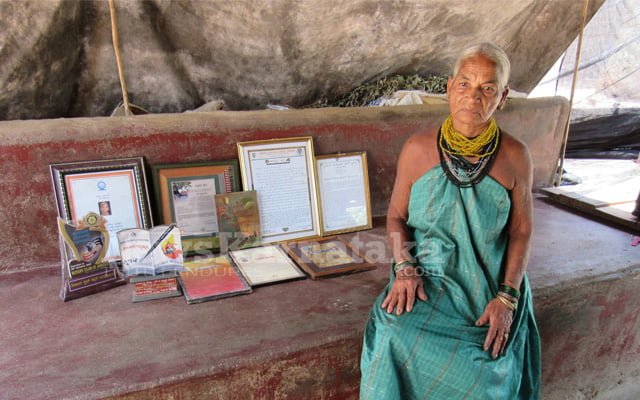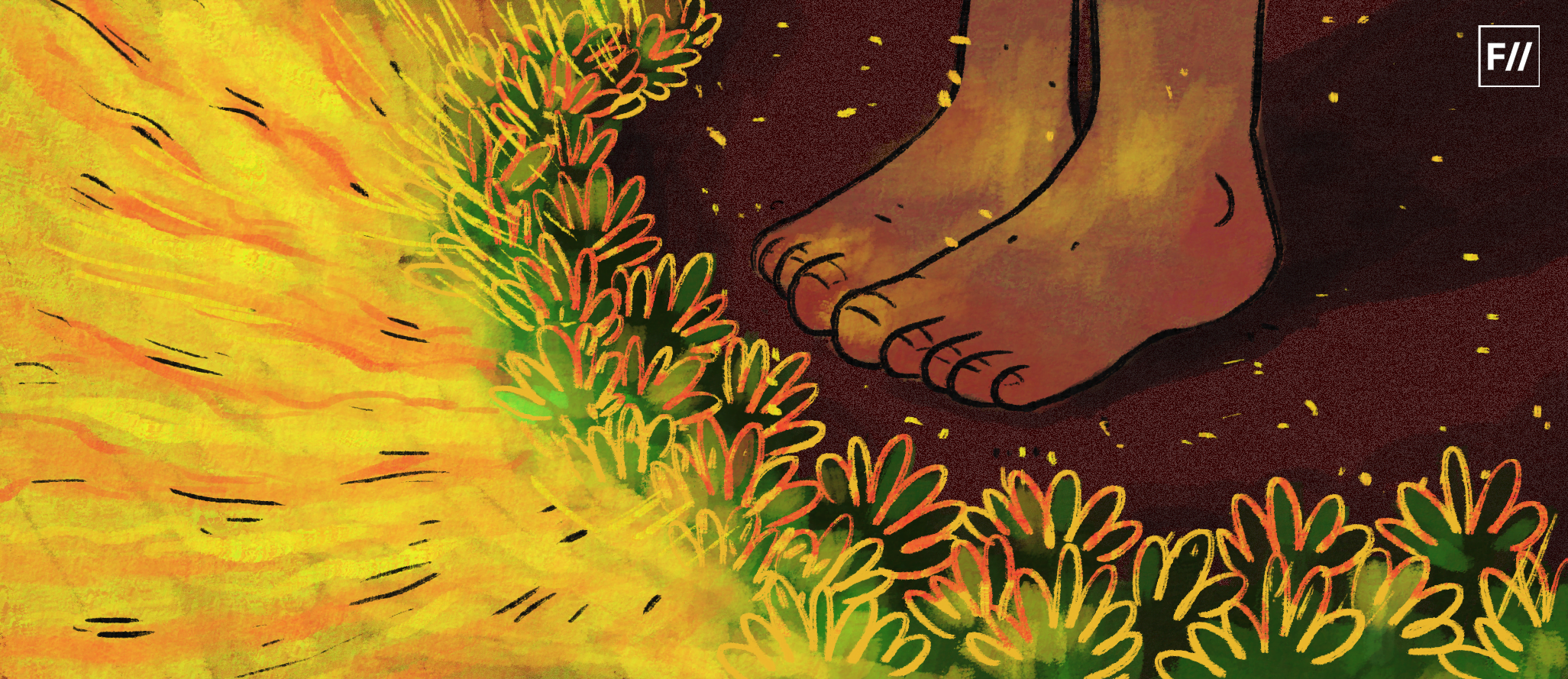Editor’s Note: This month, that is June 2020, FII’s #MoodOfTheMonth is Feminism And Environment, where we invite various articles about the diverse range of experiences which we often confront while interacting with our natural as well as social surroundings. If you’d like to share your article, email us at pragya@feminisminindia.com.
At 83, Tulasi Gowda cannot tell how many trees she has planted in her life. She is said to have planted at least 40,000 trees but some estimates number them close to a lakh. Having essentially dedicated her entire life to the forests, Tulasi Gowda knows its green inhabitants like the back of her hand, and has deservedly been given the title ‘the encyclopedia of the forest.’
Born into a poverty-stricken Hakkali tribal family in the Honnalli village in Ankola taluk of Karnataka, Tulasi had no formal education and her father passed away when she was just two years old. She had to work together with her mother and sisters to earn their livelihood. She had no formal education and was married when she was 11. Soon after, her husband passed away too.
Tulasi says she started to seek solace in planting and tending to trees, and she was a consistent volunteer in the state’s afforestation program. After immensely helping them for years, the Forest Department finally recognised her efforts and gave her a permanent job as a planter of saplings just fourteen years ago. She is now retired and subsists on a small pension given by the Forest Department, and it is her only source of income.
Tulasi has not just planted countless saplings that will grow, and have grown up to become trees that help the world at large to live a better life, she has also helped prevent poachers from destroying wildlife, and has worked to prevent many forest fires. Owing to her mindblowingly vast and accurate repository of knowledge of flora, she has also advocated against practices of the government and plantation owners which negatively impact the environment. This year, she was awarded the Padma Shri for her enormous contribution towards resuscitating the country’s forests.
“Her contribution is simply invaluable, most invaluable. I was able to recognise her extraordinary skill as a barefoot ecologist. I found that more than 90% of the tree species have regeneration problems. All these things, this lady, she simply knew. She knew the language of the forest. She knew the language of the trees. She knew the language of their germination, their survival, the technique. She cannot express that, but she is aware of that. That’s the beauty.” says A N. Yellappa Reddy, a retired official of the Indian Forest Service.
Despite the fact that people like Tulasi Gowda have consistently and for centuries been protecting forests as part of their very way of life, governments around the world have been treating them unfairly at best, and violently at worst. Tribal people consider forests sacred and have devised ways of co-existing that the rest of us have much to learn from.
For instance, the National Committee Report on Tribal People recorded that “Tribal areas are fabulously rich in minerals. The states of Odisha, Chhattisgarh and Jharkhand have considerable mineral reserves—they have 70 per cent of India’s coal deposits, 80 per cent of high-grade iron, 60 per cent of bauxite and cent per cent of the nation’s chromium reserves. An important fact is that half of the top mineral-yielding districts are tribal and they also have a forest cover of 28 per cent, more than the national average of 20.9 per cent.” Statistics similar to this, about the knowledge, sustainable practices and the resultant better environmental conditions of areas inhabited by tribal people, abound.
Yet, about 55 per cent of the country’s tribal population now reside outside their traditional habitats. Last year, the Supreme Court ordered the eviction of over a million tribal people inhabiting forest lands, their lands, where they have been living for centuries. They are regularly booked for petty ‘crimes’ such as encroachment, when they enter these forest lands to collect dead wood or fallen leaves and fruits.
It is imperative that the people in power legislate and properly enforce policies that protect vulnerable people such as these, who are also the only ones with any true claim to these lands and who genuinely care for the same – instead of their capitalist overlords who have made it blatantly clear, time and again, that the protection of the environment is the least of their concerns. Handpicking individuals and bestowing them with awards once in a while is mere tokenism done for the benefit of the government more than that of the people, and it does nothing for the betterment of their community as a whole.

Tulasi Gowda now spends her time planting still more trees, while also teaching children the importance and art of doing the same. “We need forests. Without forests, there will be drought, no crops, the sun will become unbearably hot. If the forest thrives, the country will as well. We need to create more forests,” she says.
Apart from this year’s Padma Shri, Tulasi Gowda has been honoured with numerous other awards as well – the Karnataka State Government’s Rajyotsava Award, the Indira Priyadarshini Vruksha Mitra Award, the Indavaalu H. Honnayya Samaj Seva Award and the Shrimathi Kavita Smarak Award, among others.
“I am happy that I won this award. I have won many other awards as well. Despite all these awards, plants give me the most happiness,” says Tulasi Gowda.
Also read: Here Are 5 Recent Environmental Movements You Need To Know
Featured Image Source: Femina
About the author(s)
Hamsadhwani is a law student and anti-caste socialist feminist. Abolish the conditions that produce the prison.




